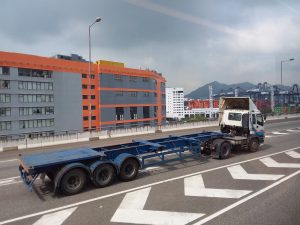When you’re looking for trucking services from Malaysia to Singapore, choosing the right trucking service provider can make or break your supply chain efficiency. You’ll need to navigate a complex web of cross-border regulations, evaluate service reliability, compare pricing structures, and assess technology integration. It’s not just about finding the cheapest option; it’s about securing a partner who can ensure smooth operations and compliance every step of the way. As you begin your search, you’ll quickly realize that not all providers are created equal. So, how do you separate the wheat from the chaff and find the perfect fit for your business needs?
supply chain efficiency. You’ll need to navigate a complex web of cross-border regulations, evaluate service reliability, compare pricing structures, and assess technology integration. It’s not just about finding the cheapest option; it’s about securing a partner who can ensure smooth operations and compliance every step of the way. As you begin your search, you’ll quickly realize that not all providers are created equal. So, how do you separate the wheat from the chaff and find the perfect fit for your business needs?
Understanding Cross-Border Regulations
When selecting a trucking provider for cross-border operations, understanding the complex web of regulations is crucial. You’ll need to ensure your chosen company complies with customs requirements, freight documentation, and vehicle specifications for both Malaysia and Singapore. Familiarize yourself with import/export laws, tariffs, and restricted goods. Verify that the provider maintains up-to-date licenses and permits for international transport.
Evaluating Service Reliability
In the domain of cross-border trucking, service reliability stands as a cornerstone of successful operations. You’ll need to assess a provider’s track record for on-time deliveries, handling of customs procedures, and ability to navigate unexpected challenges. Examine their fleet maintenance practices, driver training programs, and real-time tracking capabilities. Consider their contingency plans for route disruptions and their communication protocols during transit delays.
Comparing Pricing Structures
After evaluating service reliability, you’ll need to turn your attention to comparing pricing structures among potential trucking providers. Analyze base rates, fuel surcharges, and additional fees for services like customs clearance or special handling. Consider volume discounts and long-term contract options. Evaluate per-kilometer rates versus flat-rate pricing. Don’t forget to factor in potential hidden costs, such as detention charges or weekend delivery fees.
Assessing Technology Integration
While pricing is a key factor, the technological capabilities of a trucking provider can significantly impact your supply chain efficiency. Evaluate their use of GPS tracking, real-time shipment updates, and digital documentation systems. Consider providers offering advanced route optimization algorithms and automated customs clearance processes. Assess their integration capabilities with your existing ERP or warehouse management systems. Look for companies leveraging IoT sensors for cargo monitoring and blockchain for enhanced security and transparency.
